
Roots
There exists a quiet understanding, a knowing held deep within the strands of our coils, that the very water gracing our tresses holds secrets, both benevolent and challenging. For generations, individuals with textured hair have observed, often with a subtle sigh, the way water interacts with their unique crowns. It is a relationship at once intimate and complex, influencing the very feel and appearance of our hair long after the shower steam dissipates. To truly grasp how water softeners might tend to the thirst of coily hair, we must first descend to the elemental, to the foundational aspects of water itself and its interaction with our hair’s magnificent architecture.
Water, that giver of life, is rarely in its purest form as it flows from our taps. Instead, it carries microscopic passengers, mineral guests collected from the earth’s embrace. These guests, primarily Calcium and Magnesium Ions, are the very definition of what we call “hard water.” They are invisible to the eye, yet their presence leaves an undeniable mark, not just on our shower fixtures, but profoundly on our hair. These positively charged mineral ions possess a particular affinity for the negatively charged sites on the hair shaft, especially pronounced on textured strands.
The hair shaft, a marvel of biological engineering, is composed of a protective outer layer, the Cuticle, and an inner core, the cortex. For coily hair, the cuticle layers often do not lie as flat as on straighter hair types, presenting more opportunities for external elements to interact. When hard water flows over these delicate structures, calcium and magnesium ions adhere, layer upon layer, forming a subtle yet tenacious film.
This mineral accumulation can prevent the hair from absorbing and retaining moisture, leaving it feeling rough, dry, and brittle. It is a silent burden, one that many with coily hair experience without fully understanding its source.
Hard water minerals adhere to coily hair, forming a film that hinders moisture absorption.
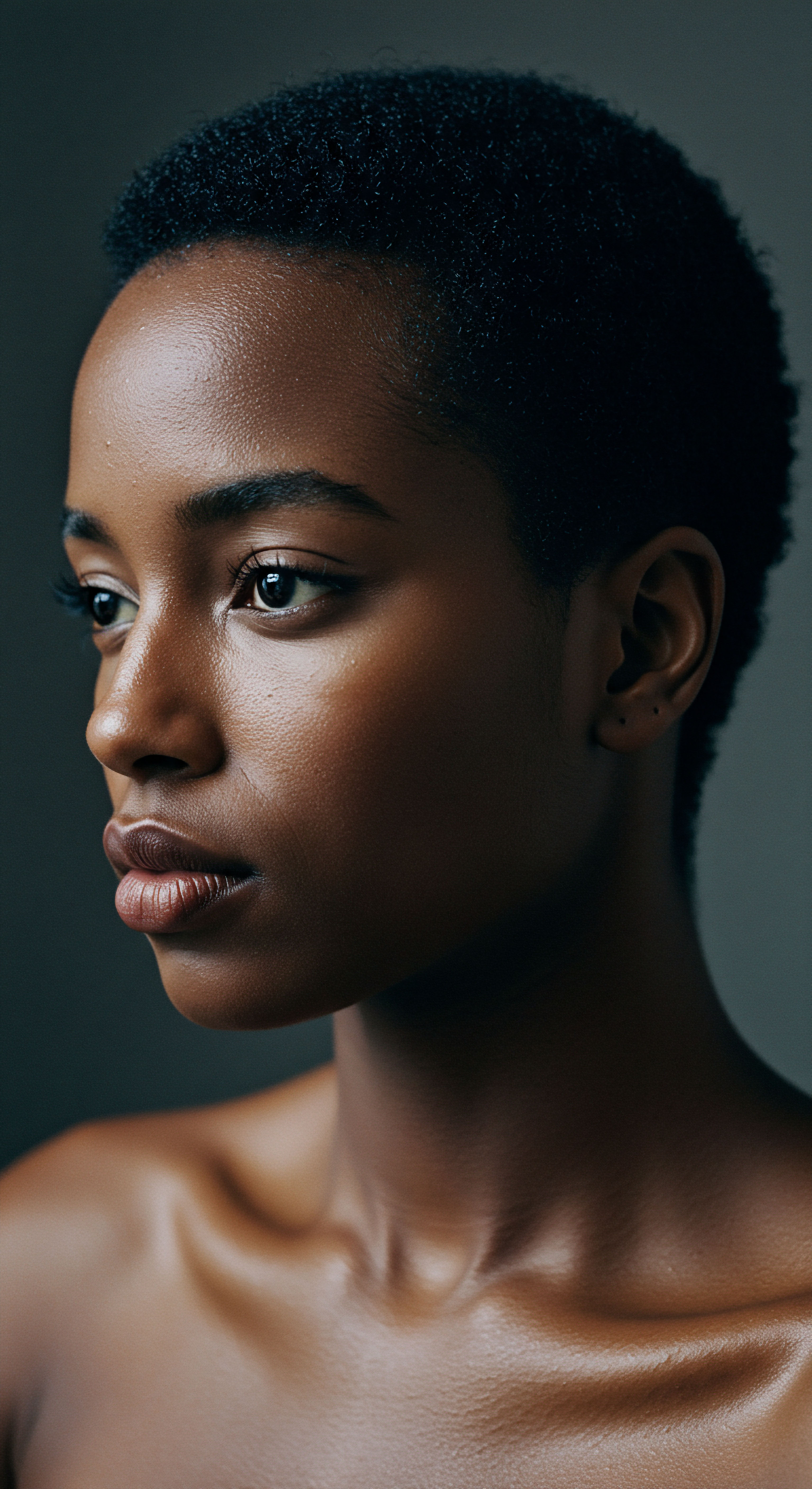
The Hair’s Intrinsic Design
To appreciate the effects of hard water, one must first admire the intrinsic design of coily hair. Each strand is a helical wonder, a spiraling structure that demands specific conditions to flourish. The natural oils, known as sebum, produced by the scalp, struggle to travel down the curves and bends of coily strands, often leaving the ends more susceptible to dryness.
This inherent predisposition for dryness means that any external factor that further impedes moisture uptake becomes a significant concern. Hard water’s mineral deposits act as a physical barrier, effectively sealing the hair’s surface against the very hydration we seek to provide through conditioners and moisturizing treatments.
Moreover, the very act of cleansing with hard water can exacerbate the issue. The calcium and magnesium ions react with the surfactants in shampoos, hindering their ability to create a rich lather and effectively cleanse the hair. This can lead to a sensation of residue remaining on the hair, even after rinsing, contributing to a dull appearance and a feeling of lack of cleanliness. The hair, in its attempt to be thoroughly washed, may then be subjected to more aggressive cleansing attempts, further stripping it of its natural, protective lipids.
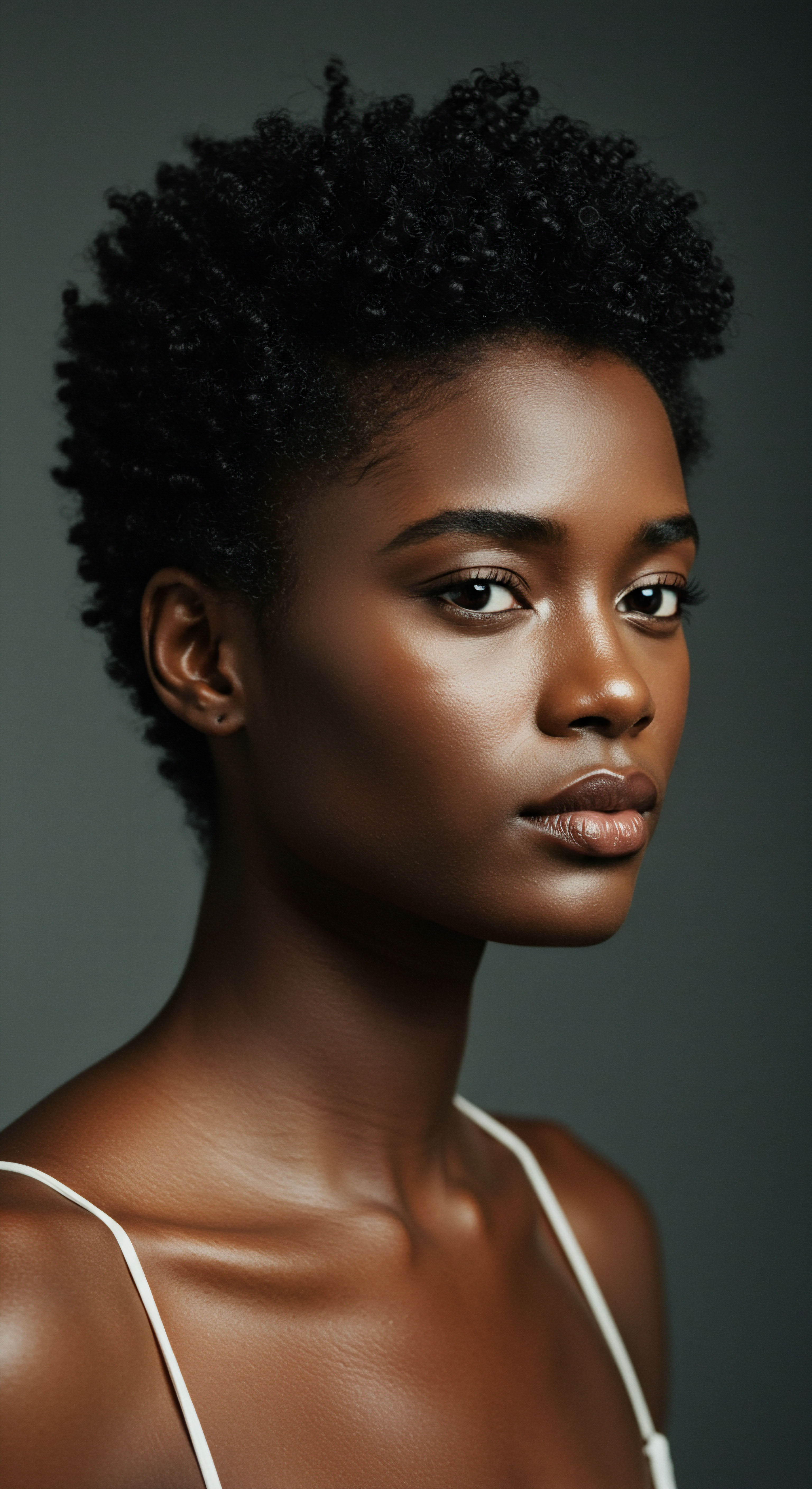
Mineral Adhesion and Hair Health
The interaction of minerals with hair is a subject of ongoing scientific inquiry. While common understanding often points to calcium as the primary culprit for visible deposits, research offers a more nuanced view. A study examining hair shaft changes related to water hardness using scanning electron microscopy (SEM) found a statistically significant difference in Magnesium Deposition on hair samples treated with hard water, with higher levels compared to soft water samples.
Interestingly, this particular study, conducted over a three-week period, did not find a statistically significant difference in calcium deposition or in visible surface changes under SEM. This suggests that the immediate microscopic effects of hard water minerals might be more complex than often perceived, with magnesium potentially playing a more prominent role in initial adherence, even if calcium’s long-term visible impact is more widely acknowledged.
The implications of such findings prompt a deeper consideration of the subtle ways water quality influences hair health. While visible dullness or stiffness might be attributed to mineral accumulation, the underlying chemical interactions can be quite specific, with different ions behaving in distinct ways on the hair surface. This scientific lens helps us appreciate that addressing hard water concerns involves understanding these subtle chemical dances as much as observing the outward signs.
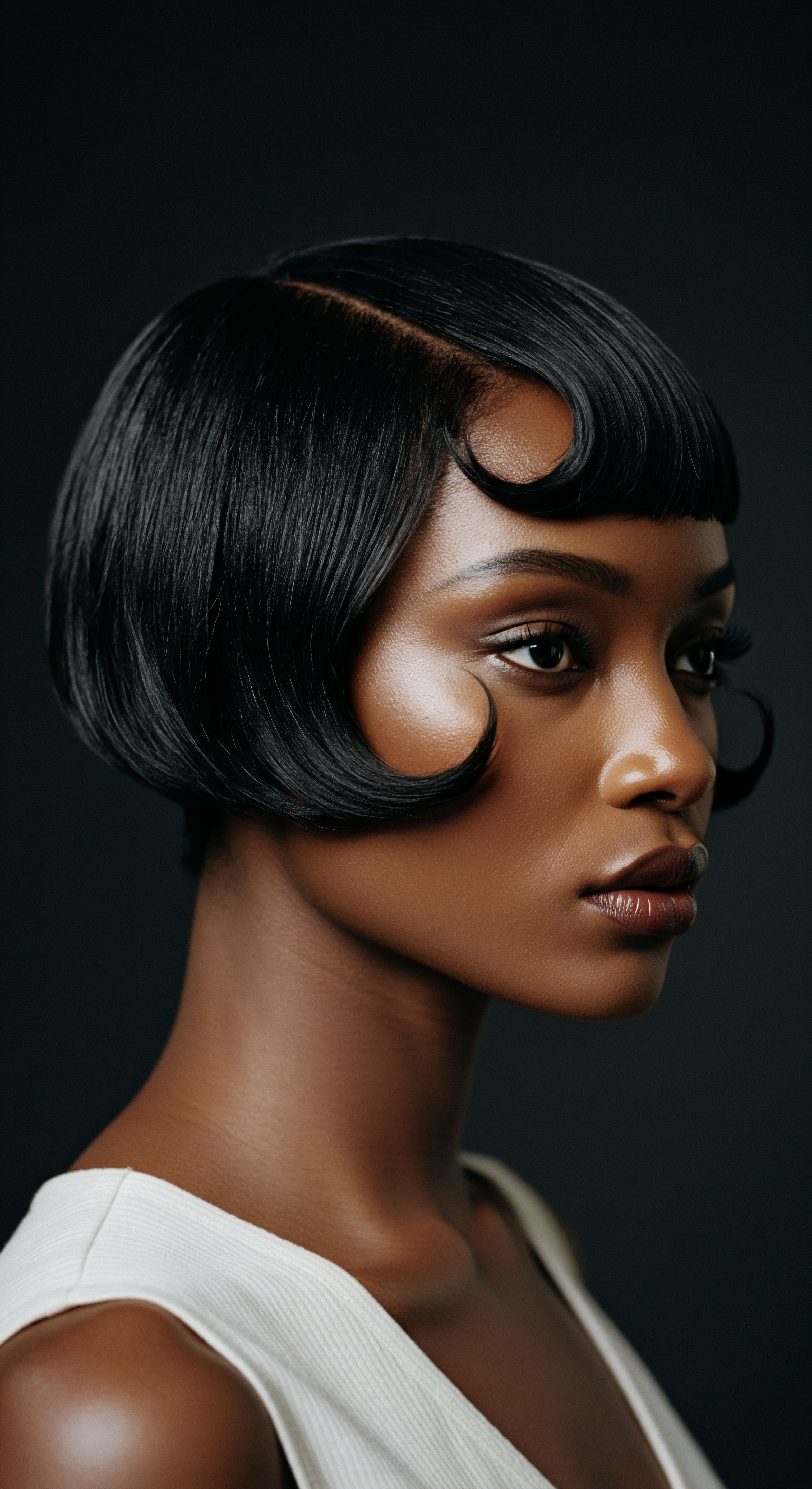
Ritual
Having peered into the foundational science of water and hair, our attention now turns to the practical wisdom that can guide our daily practices. For those with coily hair, the washing ritual is not merely a task; it is a sacred moment of care, a tender interaction with strands that deserve profound attention. It is within this very ritual that the impact of water hardness becomes most apparent, and where the gentle intervention of a water softener can truly sing. How can we transform this routine from a potential battle against unseen mineral forces into a true act of nourishment for our coils?
The concept of softening water centers on a straightforward yet transformative principle ❉ the removal of those stubborn calcium and magnesium ions that cling so readily to our hair. Water softening systems achieve this primarily through an Ion Exchange Process. Within these systems, hard water passes through a bed of resin beads. These beads are typically charged with sodium ions.
As the water flows, the calcium and magnesium ions, possessing a stronger positive charge, are attracted to the resin beads and effectively trade places with the sodium ions. The result is water with a significantly reduced mineral content, leaving it “soft.”
Water softeners remove hard minerals, allowing hair to absorb moisture more freely.

The Unseen Barrier’s Dissolution
Consider the hair’s surface under hard water conditions ❉ a landscape dotted with microscopic mineral deposits, creating a barrier. This barrier impedes moisture from truly penetrating the hair shaft, leaving coils feeling parched despite the application of rich conditioners. When softened water is introduced, this unseen obstacle begins to dissolve.
Without the constant deposition of new minerals, and with existing buildup gradually addressed (often with the aid of chelating shampoos designed to bind to and remove these metals), the hair’s cuticle layers can lie more smoothly. This smoother surface then allows for more effective absorption of water and conditioning agents.
The impact extends beyond mere absorption. The very act of cleansing becomes more efficient. Shampoos, freed from the mineral interference that inhibits lather, can work more effectively to cleanse the scalp and strands without requiring excessive product.
This means less residue, a cleaner feel, and a better foundation for subsequent conditioning steps. When coils are truly clean and free of mineral film, they are better prepared to receive the benefits of deep conditioning treatments, allowing those precious humectants and emollients to truly hydrate and soften.

Soft Water’s Direct Benefits
The direct benefits of soft water on hair are often reported as a noticeable improvement in texture and feel. Many individuals observe their hair becoming softer, feeling less coarse, and displaying increased manageability. This softness is a direct consequence of the hair’s renewed ability to retain moisture. When the hair is properly hydrated, it becomes more supple, less prone to tangling, and more responsive to styling.
A softened water environment also contributes to the longevity of hair treatments. Color-treated hair, for example, can experience less fading when washed with soft water, as mineral deposits are known to accelerate color degradation. Similarly, the efficacy of protein treatments or deep conditioning masks is enhanced, as their active ingredients are not competing with mineral buildup for binding sites on the hair shaft. This makes every step of the hair care ritual more impactful and rewarding.
- Mineral Buildup Reduction ❉ Softened water prevents the accumulation of calcium and magnesium on the hair, which often leads to dullness and stiffness.
- Enhanced Product Performance ❉ Shampoos lather more effectively, and conditioners penetrate deeper, allowing hair products to work as intended.
- Improved Hair Texture ❉ Coils feel softer, more supple, and less prone to tangles and breakage, reflecting better hydration.
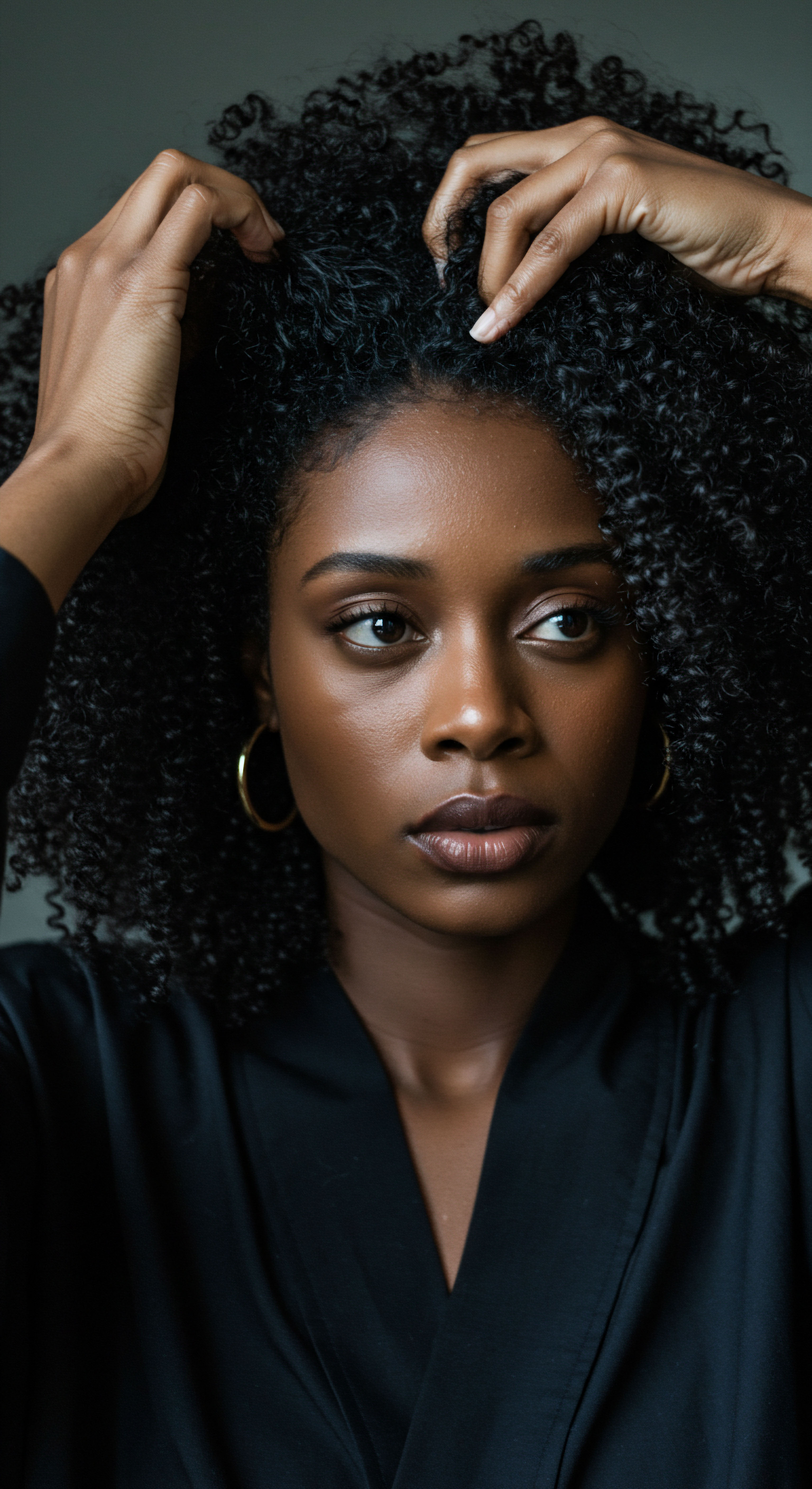
Relay
Moving beyond the immediate sensations and daily practices, how does the fundamental shift in water quality, brought about by softening, truly resonate with the intricate biological and cultural dimensions of coily hair? This inquiry invites us to consider the deeper, less obvious connections, drawing upon scientific research and a collective understanding of textured hair. Can water softeners truly alter the very resilience and health of coily hair at a profound level?
The question of water softeners and coily hair moisture extends beyond simple surface effects; it touches upon the very integrity of the hair shaft. Hard water minerals, particularly calcium, can weaken the protein structure of hair, rendering it more susceptible to breakage. This is especially pertinent for coily hair, which, due to its unique helical shape, is inherently more vulnerable to mechanical stress and breakage compared to straighter hair types. When the hair is already compromised by mineral deposits, its ability to withstand daily manipulation, styling, and even environmental stressors is further diminished.
Softened water aids in preserving hair’s structural integrity, reducing breakage susceptibility.

The Microscopic Impact of Hard Water
At a microscopic level, hard water minerals can cause the hair’s cuticle to lift. This opening of the cuticle increases the hair’s porosity, making it even more prone to losing moisture and absorbing undesirable elements. For coily hair, which can already exhibit varying porosity levels along the strand, this exacerbates existing challenges. When cuticles are ruffled and laden with mineral deposits, the hair feels rough to the touch, loses its natural sheen, and struggles to retain the lipids and water necessary for flexibility.
Consider a study published in 2018 that found hair samples treated with hard water had a lower tensile strength compared to those treated with deionized (soft) water. Specifically, the average tensile strength for hair treated with hard water was 234.16 N/mm², while hair treated with deionized water measured 254.84 N/mm². This research, involving 70 male participants, points to a measurable reduction in hair strength when exposed to hard water. While this particular study focused on straight hair, the underlying principle of mineral interaction weakening the hair fiber holds relevance across hair types, suggesting that coily hair, with its inherent fragility, could experience similar or even more pronounced negative impacts.
The implications for coily hair are significant. Reduced tensile strength translates directly to increased susceptibility to breakage, a constant concern for those managing highly textured strands. By removing the minerals that contribute to this weakening, water softeners play a silent, yet powerful, role in preserving the structural soundness of the hair, allowing it to maintain its natural resilience and beauty.
| Hair Property Moisture Retention |
| Hard Water Effect Impedes absorption, causes dryness |
| Soft Water Influence Enhances absorption, promotes hydration |
| Hair Property Texture |
| Hard Water Effect Rough, stiff, dull |
| Soft Water Influence Softer, smoother, increased sheen |
| Hair Property Tensile Strength |
| Hard Water Effect Reduced, increased breakage risk |
| Soft Water Influence Maintains integrity, lowers breakage risk |
| Hair Property Product Efficacy |
| Hard Water Effect Diminished lather, less penetration |
| Soft Water Influence Improved lather, deeper conditioning |
| Hair Property Soft water works to mitigate the detrimental effects of hard water, leading to healthier hair. |

Cultural Dimensions of Water and Hair Care
Beyond the laboratory, the relationship between water and hair care holds deep cultural resonance. Across diverse communities with textured hair, traditions of collecting rainwater or utilizing specific plant-based treatments to counteract water harshness speak to an ancestral wisdom. These practices, passed down through generations, implicitly recognized the impact of water quality on hair health long before scientific instruments could quantify mineral content. The modern water softener, in a way, echoes these ancient efforts to purify and refine the water that touches our crowns.
The desire for soft, manageable hair is not a new phenomenon; it is a timeless aspiration. For coily hair, which often demands significant time and careful handling, any factor that simplifies the care process and enhances results is invaluable. Water softeners, by reducing mineral buildup, contribute to a more efficient and less frustrating wash day, allowing products to perform optimally and leaving the hair feeling truly clean and ready for styling. This translates into less breakage during detangling, better curl definition, and a greater sense of satisfaction with one’s hair care routine.
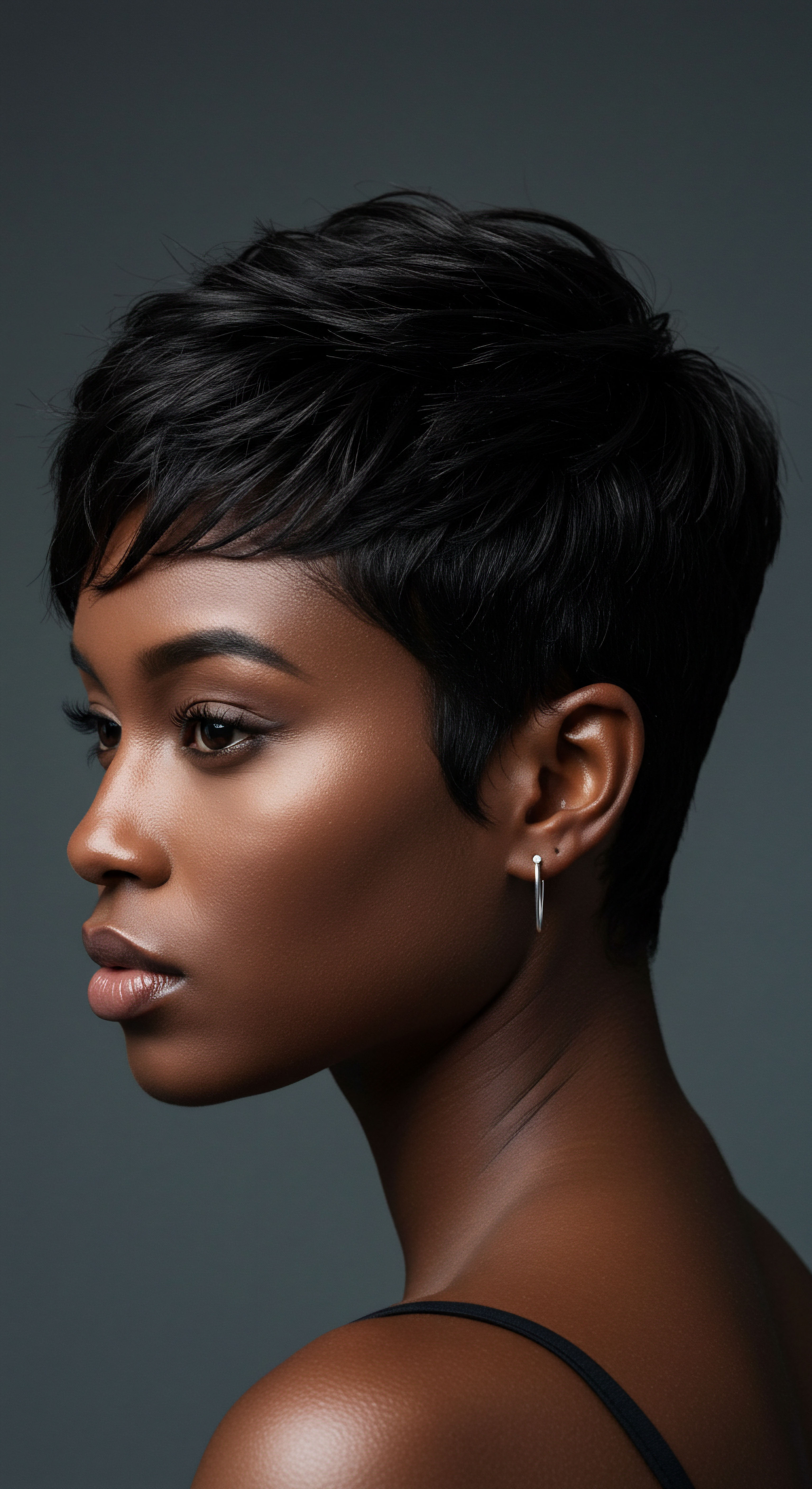
Water Content and Coily Hair Resilience
While increased water content can paradoxically lead to increased surface roughness and higher combing forces for straighter hair types, the situation for very coily hair appears different. Research at TRI Princeton suggests that for highly coiled hair, increased water content might be a positive factor, potentially aiding in the prevention of breakage. This perspective highlights a unique aspect of coily hair’s biology ❉ its need for deep, sustained hydration to maintain flexibility and resist fracture.
When coily hair is adequately hydrated, it exhibits a degree of plasticity that allows it to bend and stretch without immediately fracturing. Hard water, by impeding this hydration, makes the hair more rigid and susceptible to snapping. A water softener, by facilitating genuine moisture absorption, helps to restore this vital flexibility, contributing to the hair’s overall resilience and longevity. This deep, internal hydration is distinct from superficial wetness; it speaks to the hair’s capacity to hold water within its structure, leading to a healthier, more vibrant appearance.
- Cuticle Integrity ❉ Soft water aids in keeping the hair cuticle smooth, reducing friction and external damage.
- Protein Preservation ❉ By minimizing mineral adherence, soft water helps preserve the hair’s protein structure, lessening vulnerability to breakage.
- Optimal Hydration ❉ Softened water allows coily hair to absorb and retain water more effectively, promoting elasticity and overall hair well-being.

Reflection
Our exploration of water softeners and their potential to enhance the moisture of coily hair has led us through the unseen dance of minerals, the intimate science of the hair shaft, and the echoes of ancestral wisdom. We have seen that the water flowing from our taps is not merely a neutral medium, but an active participant in our hair’s story, capable of both nurturing and challenging its inherent beauty. The gentle intervention of softened water, by disarming the unseen mineral guests, appears to pave a clearer path for moisture to enter, to settle, and to truly hydrate our coils. This understanding invites us to consider our hair care not as a series of isolated steps, but as a continuous, interconnected dialogue with the elements around us, always seeking that delicate balance where our strands can truly flourish.
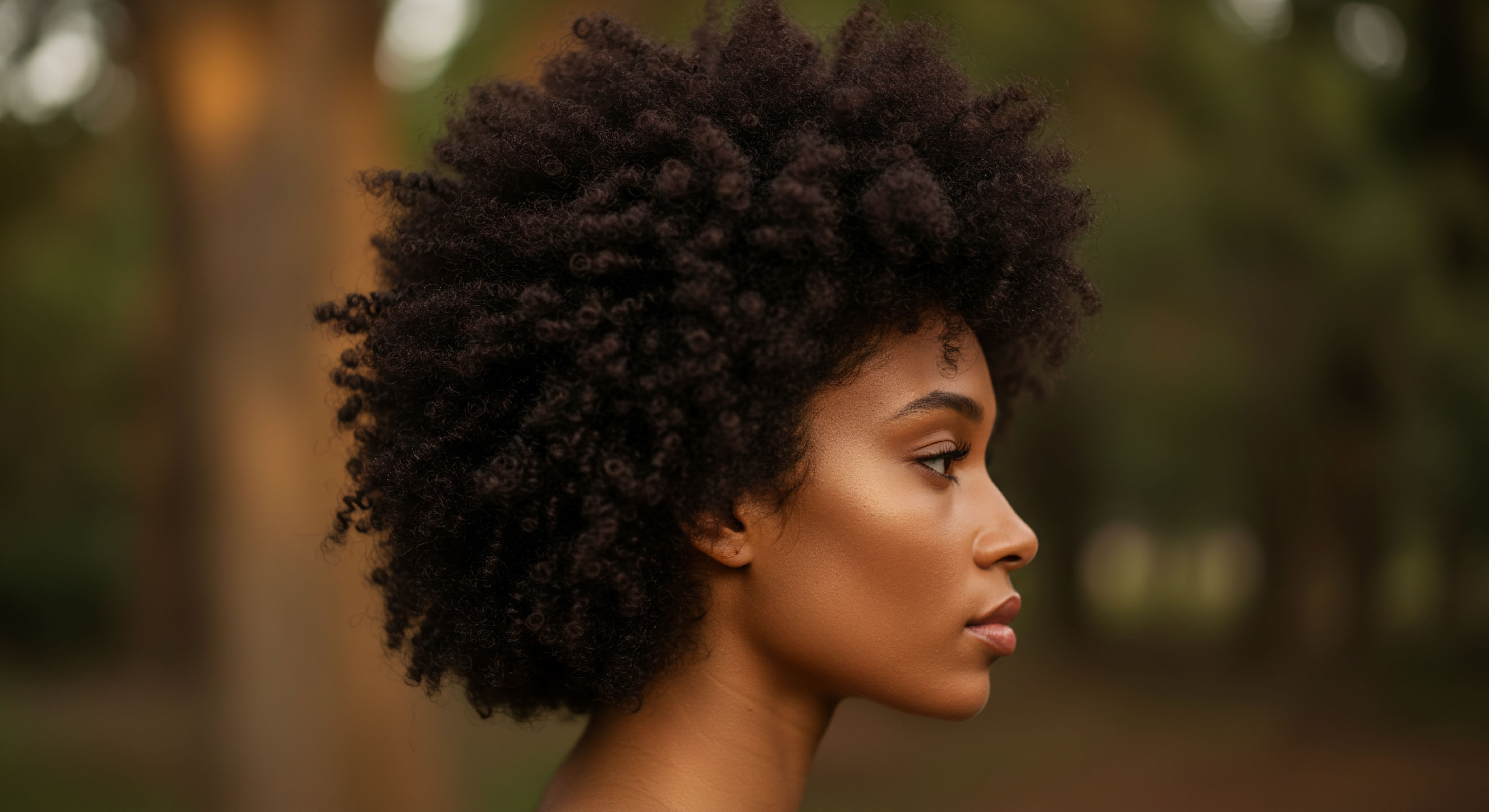
References
- Alahmmed, L. M. Alibrahim, E. A. Alkhars, A. F. Almulhim, M. N. Ali, S. I. & Kaliyadan, F. (2017). Scanning electron microscopy study of hair shaft changes related to hardness of water. Indian Journal of Dermatology, Venereology, and Leprology, 83(6), 740.
- Al-Ghadeer, H. A. & Al-Qarni, A. S. (2018). Effect of topical application of hard water in weakening of hair in men. ResearchGate.
- Evans, A. et al. (22011). The Procter & Gamble Company commissioned research to understand exactly how elevated levels of calcium and magnesium in tap water affect hair.
- Kérastase. (n.d.). Calcium Buildup on Damaged Hair.
- Luqman, S. et al. (2018). Another study based in Pakistan linked hard water to reduced hair strength.
- LearnSkin. (2022). How Hard and Soft Water Affects the Skin and Hair.
- ResearchGate. (n.d.). Calcium and magnesium content in hair as a predictor of diseases in children. Part II ❉ Disorders of the osteomusculararticular system.
- TRI Princeton. (2023). Aqua-Mane-ia ❉ The Science and Art of Water on Your Hair.
- TRI Princeton. (2024). Hair Moisturization Claims 101.
- Water Quality Research Foundation. (n.d.). Study on reduced soap and detergent use with soft water.